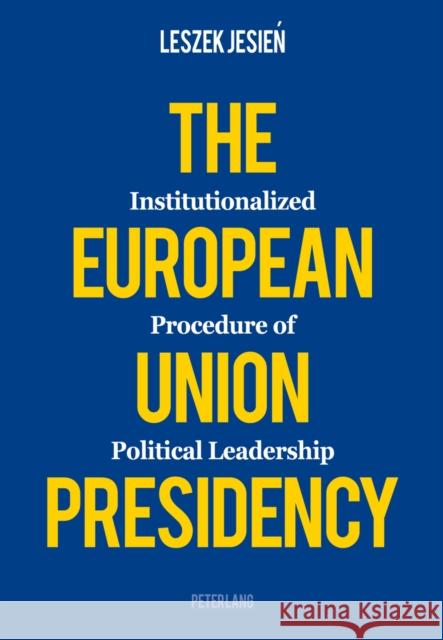The European Union Presidency: Institutionalized Procedure of Political Leadership » książka
The European Union Presidency: Institutionalized Procedure of Political Leadership
ISBN-13: 9783034312745 / Angielski / Miękka / 2013 / 401 str.
The basic questions of this book concern the contemporary role and importance of the presidency in the European Union. How has the presidency - initially quite a modest function - been able to gain such a significant role for the EU proceedings? It managed to initiate far-reaching projects, solve basic negotiating problems, or - until the Lisbon treaty - to represent the Union externally. What are the main challenges related to its preparations and how it is run? Answers to these questions seem to be necessary to capture the elements of the contemporary dispute over the political leadership in the European Union, narrowed down to the issue of the presidency and its institutional role in the EU decision-making system. Hence, another question arises: What is the significance of the presidency for the general models of European integration? Understanding that would help us not only to explain the long-term integration trends, but would also provide a reference framework for practical projects that might be undertaken by future presidencies. The basic theory of European integration tested here is institutionalism in its various formulations.











